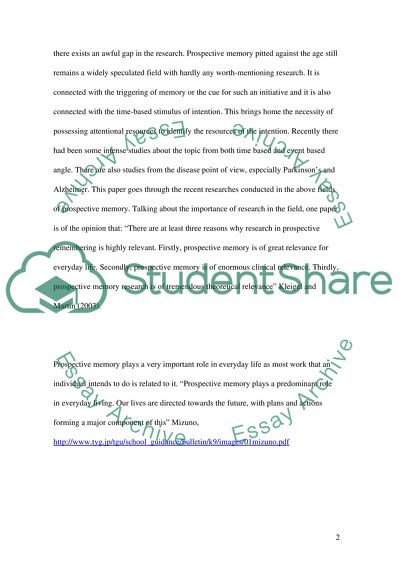Cite this document
(“Prospective Memory Essay Example | Topics and Well Written Essays - 2500 words”, n.d.)
Prospective Memory Essay Example | Topics and Well Written Essays - 2500 words. Retrieved from https://studentshare.org/psychology/1509036-prospective-memory
Prospective Memory Essay Example | Topics and Well Written Essays - 2500 words. Retrieved from https://studentshare.org/psychology/1509036-prospective-memory
(Prospective Memory Essay Example | Topics and Well Written Essays - 2500 Words)
Prospective Memory Essay Example | Topics and Well Written Essays - 2500 Words. https://studentshare.org/psychology/1509036-prospective-memory.
Prospective Memory Essay Example | Topics and Well Written Essays - 2500 Words. https://studentshare.org/psychology/1509036-prospective-memory.
“Prospective Memory Essay Example | Topics and Well Written Essays - 2500 Words”, n.d. https://studentshare.org/psychology/1509036-prospective-memory.


